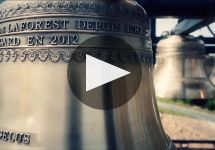Chateau Angelus 2009
-
Robert
Parker -
Wine
Spectator -
James
Suckling -
Wine
Enthusiast



Product Details
Your Rating
Somm Note
Winemaker Notes
Dense with lovely fruit aromas and delicate toasted notes. This vintage is powerful, harmonious and with very elegant.
Blend: 60% Merlot, 40% Cabernet Franc
Professional Ratings
-
Robert Parker's Wine Advocate
A candidate for one of the finest Angelus produced to date (and there have been many, including 1989, 1990, 2000 and 2005), this blend of 60% Merlot and 40% Cabernet Franc was fashioned from tiny yields of 20 hectoliters per hectare. It boasts a black/purple color along with a gorgeous perfume of blueberry liqueur, spring flowers and graphite. In the mouth, notes of incense and cassis also emerge from this velvety-textured, full-bodied, intensely concentrated 2009. With silky tannins, low acidity and spectacular purity, texture and depth, it is already approachable (although I’m sure proprietor Hubert de Bouard would think drinking it now is akin to infanticide), but should keep for 20-30+ years.
-
Wine Spectator
Rich and rather stolid now, this features a wall of roasted apple wood and charcoal flavors in front of the dense core of black Mission fig, steeped black currant fruit and espresso notes. Extremely dense on the finish, but the inlaid spice and tobacco hints are there just beneath the surface, needing only extended cellaring to emerge fully. One of the larger-scaled efforts of the vintage. Best from 2018 through 2035.
-
James Suckling
If you've ever eaten really good British Christmas cake then you know what this lavish 2009 St.-Emilion smells and tastes like. Every bit as rich as it is polished with a long moderately dry finish packed with powdery tannins. Drink or hold.
-
Wine Enthusiast
Closed at this stage, this promises a huge, ripe future. Toast and spice notes are balanced around a black plum flavor. The dense, dark tannins create a brooding character, which is balanced by freshness on the finish.
Other Vintages
2024-
James
Suckling - Vinous
-
Robert
Parker
-
James
Suckling - Decanter
- Vinous
-
Jeb
Dunnuck -
Robert
Parker
-
James
Suckling -
Jeb
Dunnuck - Decanter
-
Robert
Parker - Vinous
-
Wine
Enthusiast - Decanter
-
James
Suckling -
Robert
Parker -
Jeb
Dunnuck
-
Wine
Enthusiast -
James
Suckling -
Jeb
Dunnuck - Decanter
-
Robert
Parker
-
James
Suckling -
Jeb
Dunnuck - Decanter
-
Robert
Parker
-
Jeb
Dunnuck -
Robert
Parker -
James
Suckling - Decanter
-
Wine
Enthusiast -
Wine
Spectator
-
Jeb
Dunnuck -
James
Suckling -
Wine
Enthusiast - Decanter
-
Wine
Spectator -
Robert
Parker
-
Wine
Enthusiast -
James
Suckling -
Robert
Parker - Decanter
-
Jeb
Dunnuck -
Wine
Spectator
-
James
Suckling -
Jeb
Dunnuck -
Robert
Parker -
Wine
Enthusiast -
Wine
Spectator - Decanter
-
Wine
Enthusiast -
James
Suckling - Decanter
-
Wine
Spectator - Vinous
-
Robert
Parker
-
Wine
Spectator -
Robert
Parker -
Wine
Enthusiast -
James
Suckling
-
James
Suckling -
Jeb
Dunnuck -
Robert
Parker -
Wine
Enthusiast -
Wine
Spectator
-
James
Suckling -
Robert
Parker -
Wine
Spectator -
Wine
Enthusiast
-
Wine
Enthusiast -
Robert
Parker -
Connoisseurs'
Guide -
Wine
Spectator
-
Robert
Parker -
Wine
Spectator -
Wine &
Spirits -
Connoisseurs'
Guide
-
Jeb
Dunnuck -
Robert
Parker -
Wine
Spectator -
Wine &
Spirits -
Connoisseurs'
Guide
-
Robert
Parker -
Wine &
Spirits -
Wine
Spectator
-
Robert
Parker
- Decanter
-
Robert
Parker
-
Robert
Parker -
Jeb
Dunnuck -
Wine
Spectator
-
Robert
Parker
-
Robert
Parker -
Wine &
Spirits -
Wine
Spectator
-
Robert
Parker
-
Robert
Parker -
Wine
Spectator
-
Robert
Parker -
Wine
Spectator
-
Wine
Spectator
-
Robert
Parker
-
Robert
Parker -
Wine
Spectator
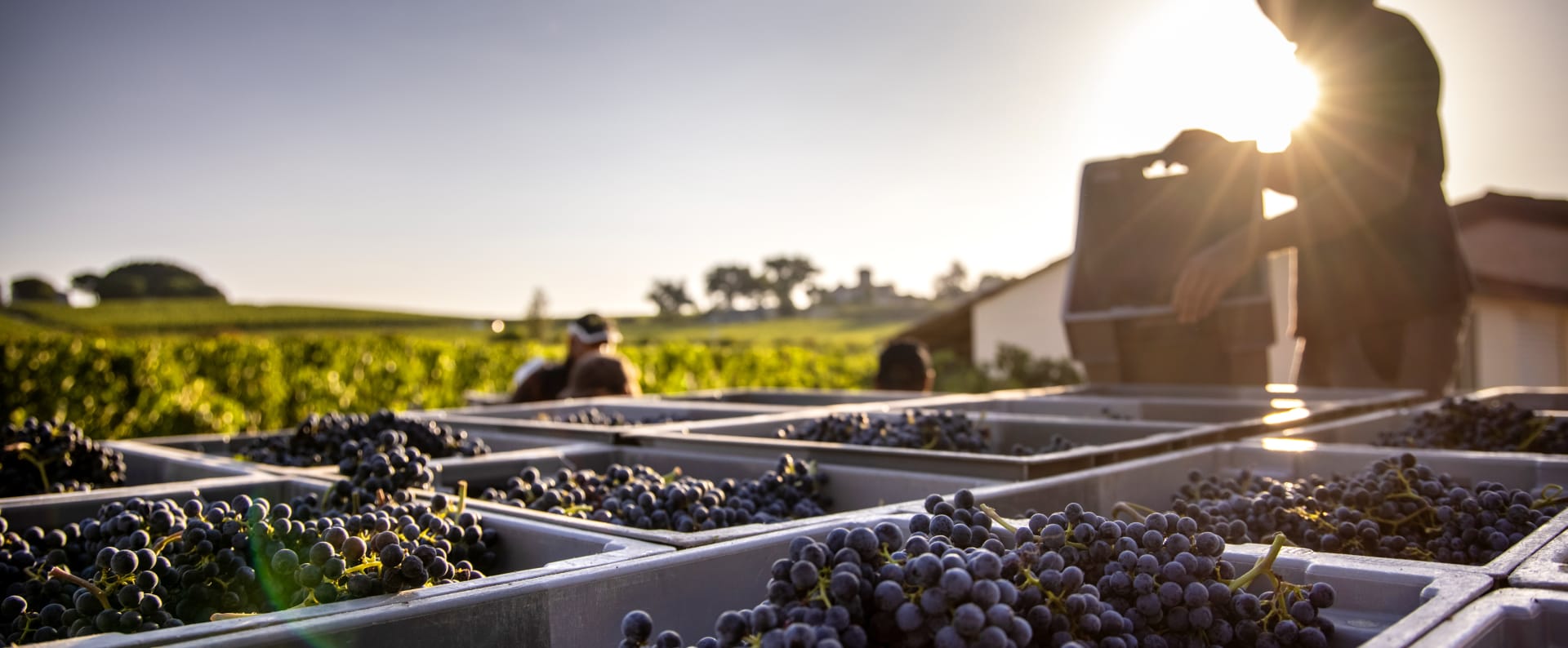
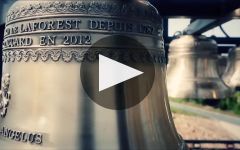
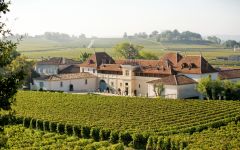
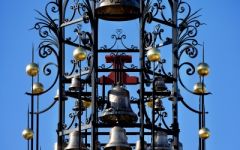
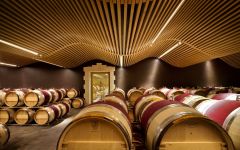
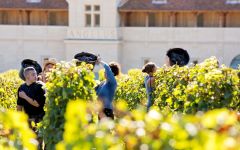
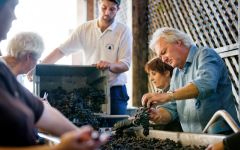
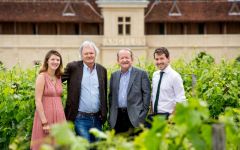

At the origin of Angelus is an exceptionally well-situated vineyard, at the gates to the village of Saint-Émilion, on the famous south-facing "foot of the slope". Since 1782, over the generations, the passion and determination of the de Boüard de Laforest family have built a destiny worthy of the Estate. At 131 hectares including 62 hectares in Saint-Émilion, of which 31 hectares from the historic heart of the Estate, Angelus is now one of the largest vineyards in the appellation. In 2012, after more than thirty years at the helm of Angelus, Hubert de Boüard de Laforest passed the baton to his daughter, Stéphanie de Boüard-Rivoal. She became the third woman in the family's nearly 250-year history to preside over the destiny of this emblematic Estate, ensuring its legacy continues to thrive. Today, Angelus employs 170 people, produces 8 cuvées and owns restaurants and hotels, in particular, the Logis de la Cadène in Saint-Émilion and Le Gabriel in Bordeaux. In 2023, diversification continued with the creation of La Ferme 1544, forming a link between Château Angelus wine business and its restaurants.

One of the world’s most classic and popular styles of red wine, Bordeaux-inspired blends have spread from their homeland in France to nearly every corner of the New World. Typically based on either Cabernet Sauvignon or Merlot and supported by Cabernet Franc, Malbec and Petit Verdot, the best of these are densely hued, fragrant, full of fruit and boast a structure that begs for cellar time. Somm Secret—Blends from Bordeaux are generally earthier compared to those from the New World, which tend to be fruit-dominant.

Marked by its historic fortified village—perhaps the prettiest in all of Bordeaux, the St-Émilion appellation, along with its neighboring village of Pomerol, are leaders in quality on the Right Bank of Bordeaux. These Merlot-dominant red wines (complemented by various amounts of Cabernet Franc and/or Cabernet Sauvignon) remain some of the most admired and collected wines of the world.
St-Émilion has the longest history in wine production in Bordeaux—longer than the Left Bank—dating back to an 8th century monk named Saint Émilion who became a hermit in one of the many limestone caves scattered throughout the area.
Today St-Émilion is made up of hundreds of independent farmers dedicated to the same thing: growing Merlot and Cabernet Franc (and tiny amounts of Cabernet Sauvignon). While always roughly the same blend, the wines of St-Émilion vary considerably depending on the soil upon which they are grown—and the soils do vary considerably throughout the region.
The chateaux with the highest classification (Premier Grand Cru Classés) are on gravel-rich soils or steep, clay-limestone hillsides. There are only four given the highest rank, called Premier Grand Cru Classés A (Chateau Cheval Blanc, Ausone, Angélus, Pavie) and 14 are Premier Grand Cru Classés B. Much of the rest of the vineyards in the appellation are on flatter land where the soils are a mix of gravel, sand and alluvial matter.
Great wines from St-Émilion will be deep in color, and might have characteristics of blackberry liqueur, black raspberry, licorice, chocolate, grilled meat, earth or truffles. They will be bold, layered and lush.
